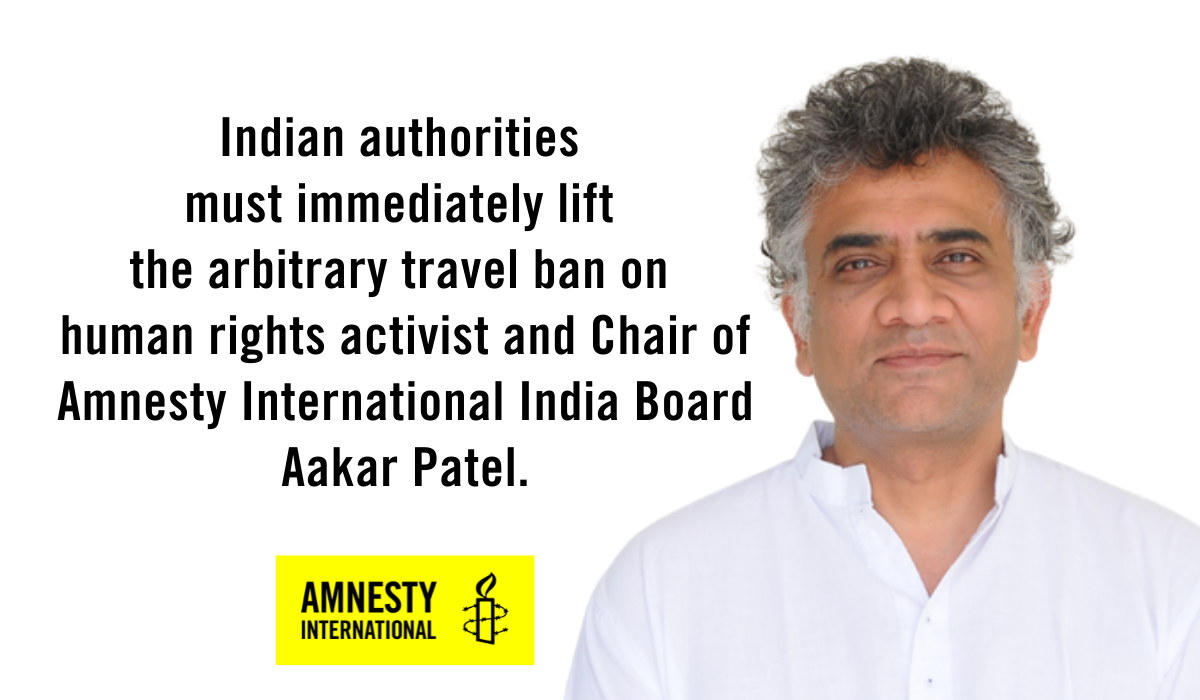Indian authorities must immediately lift the arbitrary travel ban imposed on Indian human rights activist and Chair of Amnesty International India Board Aakar Patel, Amnesty International said today.
On Wednesday, Aakar Patel was on his way to attend multiple conferences on the use of social media for social and political change and the attacks on the civil society in India organized by the University of Michigan, University of Berkeley, and New York University in the United States of America. Immigration authorities at the Bangalore Airport prevented him from leaving the country despite a judicial order permitting him to travel outside India for his speaking engagements.
“Denying Aakar’s right to freedom of movement to prevent him from exercising his freedom of expression is an alarming manifestation of the Indian government’s mounting crackdown on human rights defenders and activists. Operating in a climate of harassment, intimidation, interference and constant surveillance is unacceptable, but has unfortunately become routine for human rights activists in India,” said Kyle Ward, Deputy Secretary General of Amnesty International.
In October 2020, Amnesty International India was forced to cease its human rights work after its bank accounts were frozen by the Enforcement Directorate, an investigative agency of the Government in India. This was at a time when civil society in India was under increased surveillance and risk of closure, activists and journalists jailed and minorities attacked- a situation which has continued to date. Since then, Amnesty International India has been fighting multiple court cases instituted by various agencies of Indian Government against the organization. Before it halted operations, Amnesty International India faced a concerted and vicious smear campaign of spurious allegations, raids by various investigative agencies, malicious media leaks, and intimidation for merely speaking truth to power. As the Chair of Amnesty International India Board, Aakar Patel is regularly at the forefront of the ongoing litigation.
“Imposing travel bans on human rights defenders in India is not new. In the last few years, many human rights activists and journalists have been banned at the last moment from attending international conferences and UN events on the human rights situation in India. This incessant witch-hunt is contrary to India’s international human rights obligations and reflects poorly on its role as a member of the UN Human Rights Council,” said Kyle Ward.
Further, these arbitrary restrictions on the right to freedom of movement are usually placed through a “Look-Out Circular”. Amnesty International cannot identify any enacted law in India which may prove the legal or statutory basis of this document. These politically motivated executive orders act as de facto travel bans and are imposed in a discriminatory manner based on a person’s political opinion.
“For Aakar, who dares to raise his voice peacefully and consistently against injustice, a travel ban is nothing but retaliation from the Indian government against his activism. It must be immediately revoked” said Kyle Ward.


